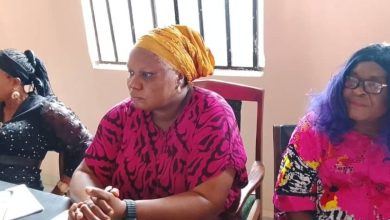Kaduna Government Partners SFH to Tackle Rising Teenage Pregnancy and Improve Youth Health
Kaduna State has unveiled plans to curb rising adolescent pregnancy rates by integrating Society for Family Health’s successful health models into its policies.
Officials say the move is vital to securing a healthier future for the state’s youth and transforming its growing population into a powerful development asset.
In a bold move to confront worsening health indicators among its youth, the Kaduna State Government has announced plans to integrate successful initiatives from the Society for Family Health (SFH) into its health policy framework. The partnership aims to address the alarming rate of adolescent pregnancies and harness the state’s demographic advantage by investing in the health and well-being of young people.
Dr. Aisha Abubakar-Sadiq, Permanent Secretary of the Kaduna State Ministry of Health, made this known during a media interaction with the News Agency of Nigeria. This was on the sidelines of the A360 Amplify Project’s Adolescent Sexual and Reproductive Health (ASRH) Policy Dialogue and Transition Alignment meeting held in Zaria on Sunday.
According to Dr. Abubakar-Sadiq, the SFH has developed a comprehensive strategy rooted in global best practices, originally conceptualized in a Western country, which Kaduna State is now adopting. She stated that the project offers a well-structured roadmap for designing and delivering sexual and reproductive health programs specifically tailored for adolescents and young women.
While she acknowledged that commendable progress had been made over the years, the health official stressed that urgent and focused action is still needed to tackle persistent issues. She cited data showing that nearly one out of every three girls between the ages of 15 and 19 in Kaduna is either already a mother or currently pregnant.
“This statistic is deeply concerning and highlights the urgent need for targeted interventions,” she said. “Despite ongoing efforts, contraceptive use among adolescents in the state remains unacceptably low.”
Dr. Abubakar-Sadiq further noted that several factors contribute to this challenge. Early marriage continues to be widespread, especially in rural areas of the state. In addition, gender inequality, social stigma, widespread misinformation, and a lack of youth-friendly health services further hinder progress.
Kaduna State, she said, is at a demographic crossroads. With a population exceeding eight million people, more than 60 percent are under the age of 25. This youthful population could either become a demographic dividend or a liability, depending on how well their health, education, and empowerment are handled.
“To truly benefit from this population dynamic, we must prioritize adolescent health and invest in scalable, sustainable, and culturally appropriate programs,” she said. “This is why integrating the SFH model is so important. It represents a tested and proven approach to promoting sexual health education and reproductive rights for our youth.”
She emphasized the importance of community ownership, political commitment, and long-term sustainability in ensuring that the gains already achieved are not reversed. The government’s collaboration with SFH and other partners reflects a growing understanding that health is not just a medical issue but a social and developmental imperative.
In a related development, Mr. Kenneth Okeineme, a Health Governance and Public Policy Specialist, described the A360 Amplify project as a pioneering initiative in adolescent health in northern Nigeria. He noted that the project focuses particularly on the needs of married adolescent girls a group often overlooked in public health discussions.
Okeineme explained that the initiative promotes the use of modern contraceptives and encourages healthy child spacing. These steps, he said, are critical to improving maternal health outcomes and ensuring that girls have the opportunity to continue their education and pursue their aspirations.
Currently being implemented in Kaduna through local partner Matasan Matan Arewa, the program has already begun to yield positive results. According to Okeineme, the project has recorded unprecedented achievements, offering a replicable model for other northern states facing similar demographic and health challenges.
As Kaduna takes decisive steps to confront the pressing issues facing its adolescent population, the integration of SFH’s successful strategies marks a significant step forward in creating a healthier, more empowered generation.



